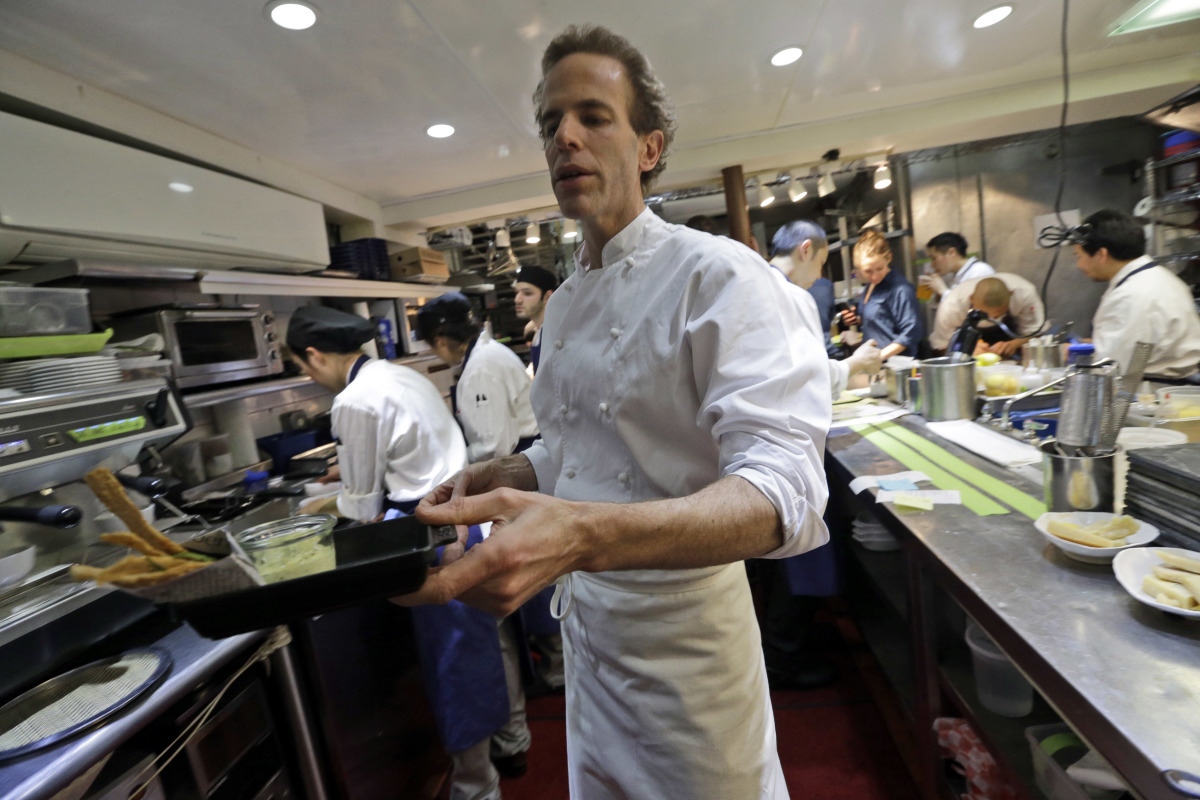Waste Not, Want Not, Eat Up?
Author: Hannah Goldfield
The other night, as I ate a salad at Blue Hill, in the West Village, a server approached my table with an iPad. “Have you seen this?” she asked. “Chef wanted you to see this.” By “Chef,” she meant Dan Barber, the man behind Blue Hill and Blue Hill Stone Barns, a sister restaurant and farm upstate. By “this,” she meant a photograph of a dumpster, into which a chute was depositing an enormous quantity of multi-colored scraps of fruit and vegetables—the runoff from a commercial food processor. The experience felt something similar to being shown a picture of what would happen to a sad-eyed old horse if you didn’t save it from the glue factory. Sitting in a small, enamel casserole dish in front of me were fruit and vegetable scraps that Barber had rescued, just like the ones in the photo. Arranged in an artful tangle, bits of carrot, apple, and pear were dressed with a creamy green emulsion, studded with pistachios, and garnished with a foamy pouf that turned out to be the liquid from canned chickpeas, whipped into haute cuisine.
A parsnip head in a shallow dish of water, its tall greens splayed elegantly, served as a strangely beautiful centerpiece for the table. Beside it, a candle flickered in a small glass pitcher, labelled with a piece of masking tape on which someone had written “beef”: instead of wax, the melted liquid was beef tallow, or rendered fat, to be poured onto a plate just as several slices of a dark, musky bread, made with grain left over from beer-brewing, arrived to dip in it.
This was the opening night of Barber’s first-ever pop-up, which will close out its two-week run on Tuesday. Until then, Blue Hill’s understatedly elegant dining room will remain nearly unrecognizable, dressed up—or down, really—as a new restaurant called wastED. Formless Finder, an architecture firm that specializes in recycled materials, has covered the walls in an industrial-looking fabric known as “row cover,” which is used on farms to protect crops from cold, wind, and pests. The normal tabletops have been replaced by slabs of mycelium, the all-natural and biodegradable plastics substitute that Ian Frazier wrote about for this magazine in 2013. On that first evening, even the playlist was reused: over the course of the meal, I heard Queen’s “Bohemian Rhapsody” three times.

